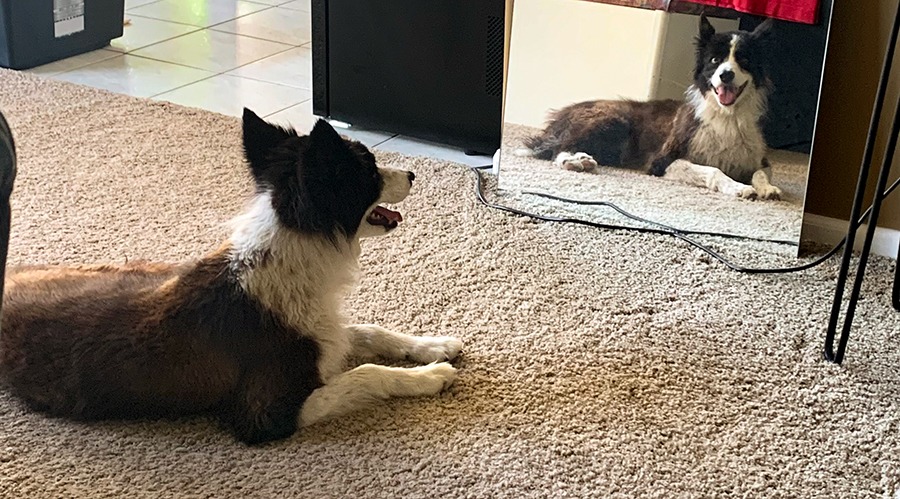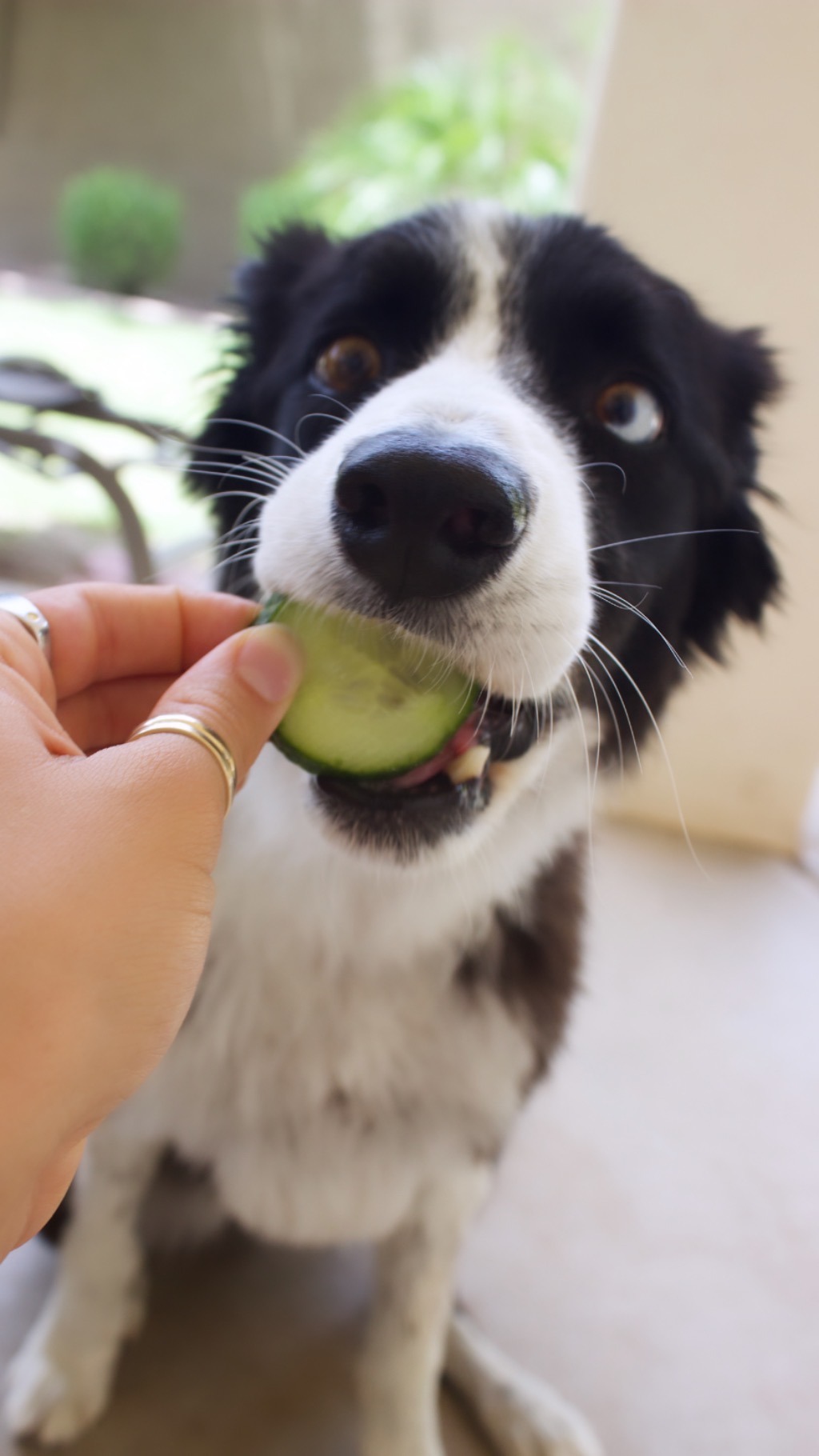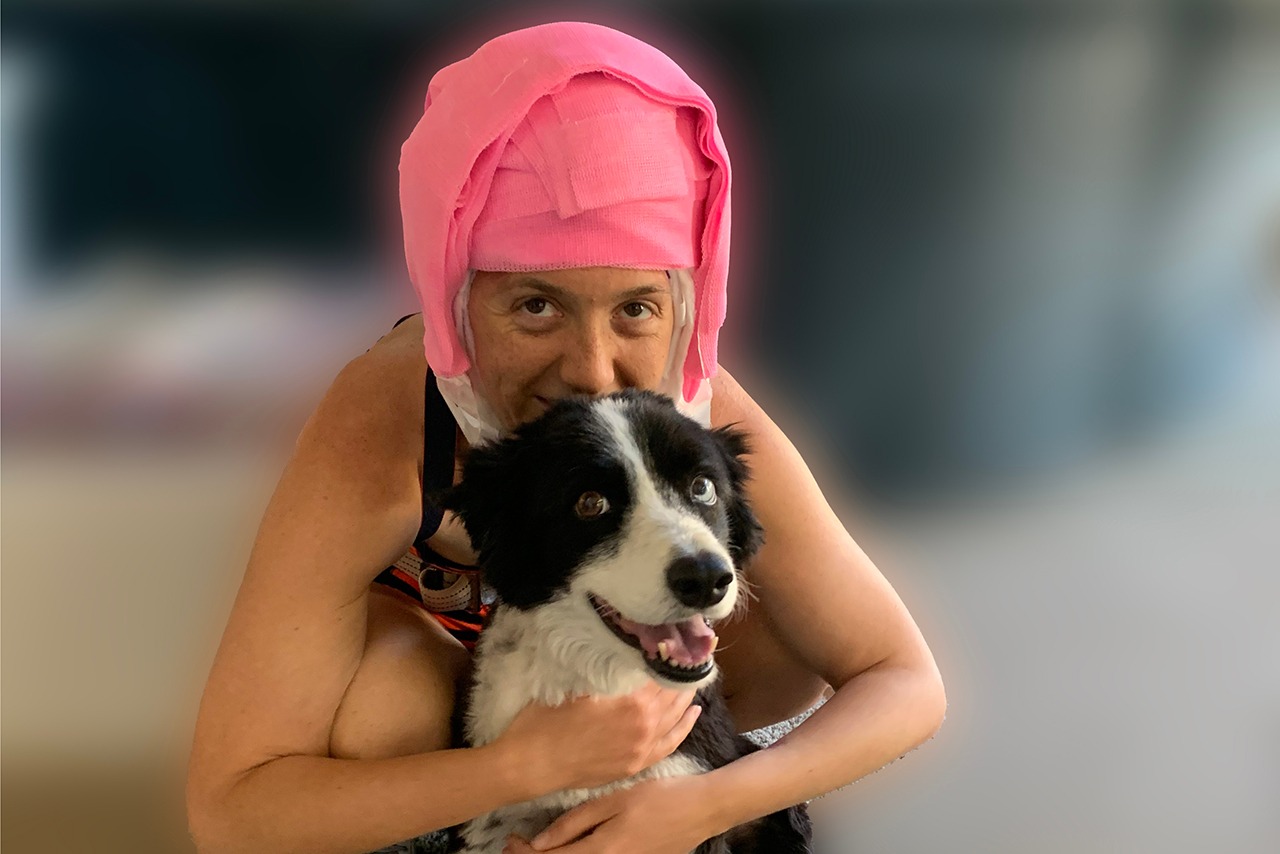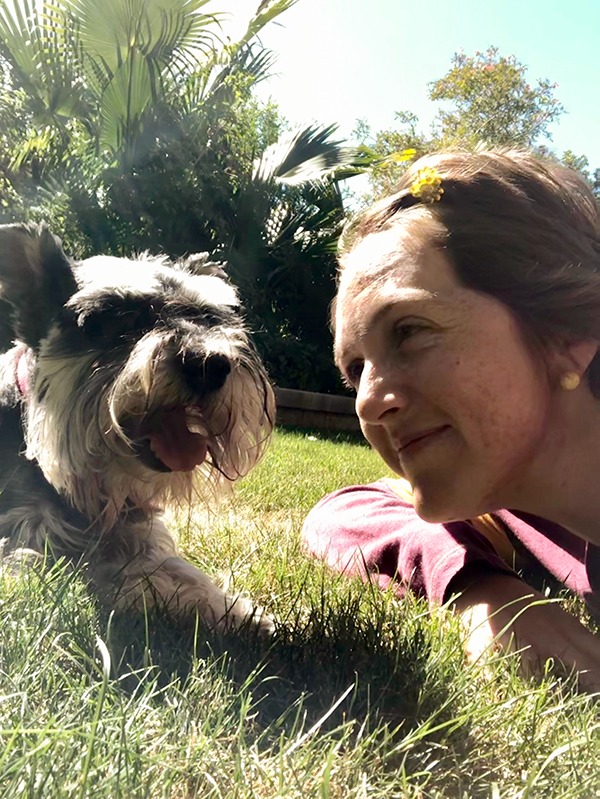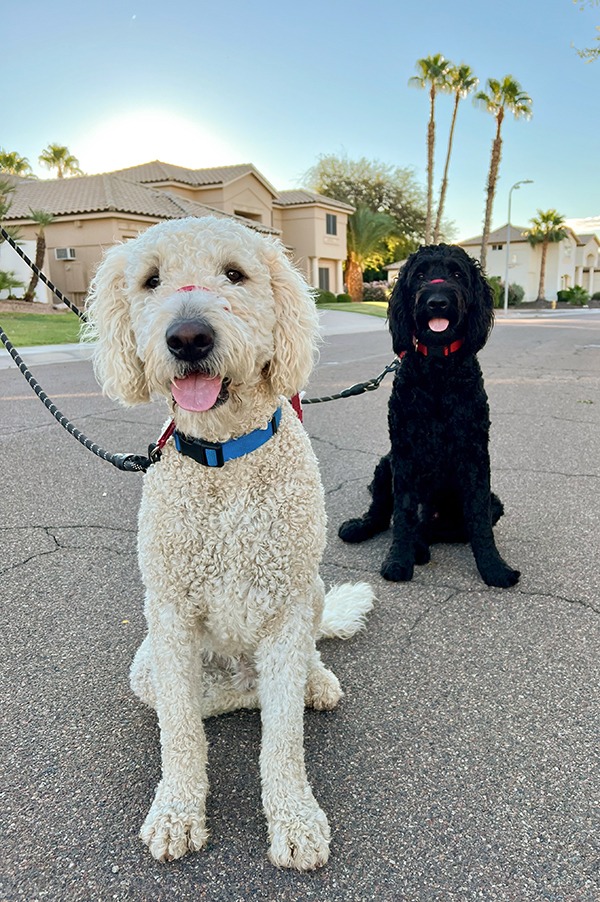Pet Care = Self-Care
How unconditional love from pets taught this brain injury survivor to practice unconditional self-love
BY EMILY NICHOLS, GUEST BLOGGER
MEMORY NAME GAME
In 2020, I woke up in a hospital after my accident to a nurse asking me to say the names of people whose pictures were on a poster board in front of me. It was like a game of “Guess Who?” … but brain injury edition.
It sounds like this name game is a typical way to check cognitive functions when there’s brain damage in the mix … which in my case, was a severe traumatic brain injury and more than 20 days of critical care.
While people usually enter the recovery rooms to see their loved ones, thanks (but no thanks) to COVID-19 restrictions, the nurses asked my family to make a poster board with their pictures so we could play the memory name game.
These pictures were as close as my family could get to me for the duration of my hospital stay, despite flying across the country from Phoenix to Chicago to be near me.
Even though I don’t remember anything from my accident or the early days of recovery, I do remember taking one look at the poster board and shouting: “THAT’S JOSIE!”
Beyond my mom, brother and sister, one of the pictures was my border collie, Josie, chomping on a cucumber slice. At least we spoil her with healthy treats, right?
That cucumber moment isn’t the only time Josie got spoiled in her 12 (human) years of life. It turns out my life-altering accident was the reason for Josie’s life-altering experience, too.
READY … (JET) SET … GO!
As a ripple effect of my accident, when my family flew to be near me, they had to find someone (or many people) to take care of Josie. A steady rotation of helpers was on the case until our friends offered to go the extra mile (literally) and care for Josie in an amazing way.
Josie became a jet-setter.
Picture this: a Border Collie travels on a private jet between Arizona, Florida and Colorado living the dream while humans do their best to walk with gait belts from A-to-Z on the road to recovery in rehab centers and doctors’ offices in Chicago and Phoenix.
Inspired by the amazing care our friends gave Josie, I now help in a similar way. I take care of pets when their families need my help – any time, for any reason.
I am, however, still working on getting a private jet to rival the magnificence of Josie’s experience.
DOG DUTIES & DOG SITTING
Back home in Phoenix, I struggled for more than a year to find formal work.
For the first several months at home, daily dog duties were the easiest part of adding routine back into my life. Making sure pets stick to their basic biological needs (you know the ones) helped me stay on track with mine, too.
When days were less than perfect (especially right after surgery when I had to get my third cranial helmet), Josie was always the first to greet me and make sure I remembered to give her love and treats (again, spoiled!).
Once strong enough, my kind neighbors offered to employ me as caregiver for their miniature schnauzer, Sophie. I remember my family teased me that they never pictured me with a “therapy dog” until this gig. I couldn’t resist snuggling with sweet Sophie.
Not long after I started taking care of Sophie, the word spread, and another set of neighbors asked me to care for their goldendoodles, Buddy and Bear.
I used to take care of several dogs in high school and college, but I sure do not remember caring about (or benefiting from) the work as much as I do now.
It used to be about making money. Now, I see how caring for pets is some of the best brain therapy on the market.
Sophie
Buddy and Bear
WALK & TALK THERAPY
I believe the therapeutic value that comes from spending time with pets is multidimensional.
For physical therapy, I love taking dogs for walks. My neurosurgeon told me to walk 90 minutes each day for optimal recovery, so walking pets is a combo pack of benefits.
Walking with cute dogs makes for an easy conversation starter, too. My brain loves simplified cognitive retraining!
For emotional therapy, I love “talk therapy” with pets. On particularly hard days, I can process my emotions with Josie or Sophie or Buddy and Bear there to listen … and they never reply with anything but love and support.
NEW APPRECIATION FOR TREATS
I encourage all brain injury survivors to soak in the therapeutic benefits of pets, even if that means borrowing them from a friend or neighbor for an hour.
For me, accepting unconditional love from a pet is an incredible way to heal when the rest of the world feels like it is constantly filled with challenging conditions.
I now think about caring for pets as a version of a “treat” for my brain. With the right perspective and intention, caring for pets is much more than work…
Pet care is self-care.
ABOUT BRAIN INJURY ASSOCIATION OF ARIZONA
The Brain Injury Association of Arizona (BIAAZ) is the only statewide nonprofit organization dedicated to improving the lives of adults and children with all types of brain injuries through prevention, advocacy, awareness and education. BIAAZ also houses the Arizona Brain Health Resource Center, a collection of educational information and neuro-specific resources for brain injury survivors, caregivers, family members and professionals.
What began in 1983 as a grassroots effort has grown into a strong statewide presence, providing valuable life-long resources and community support for individuals with all types of brain trauma at no charge.

